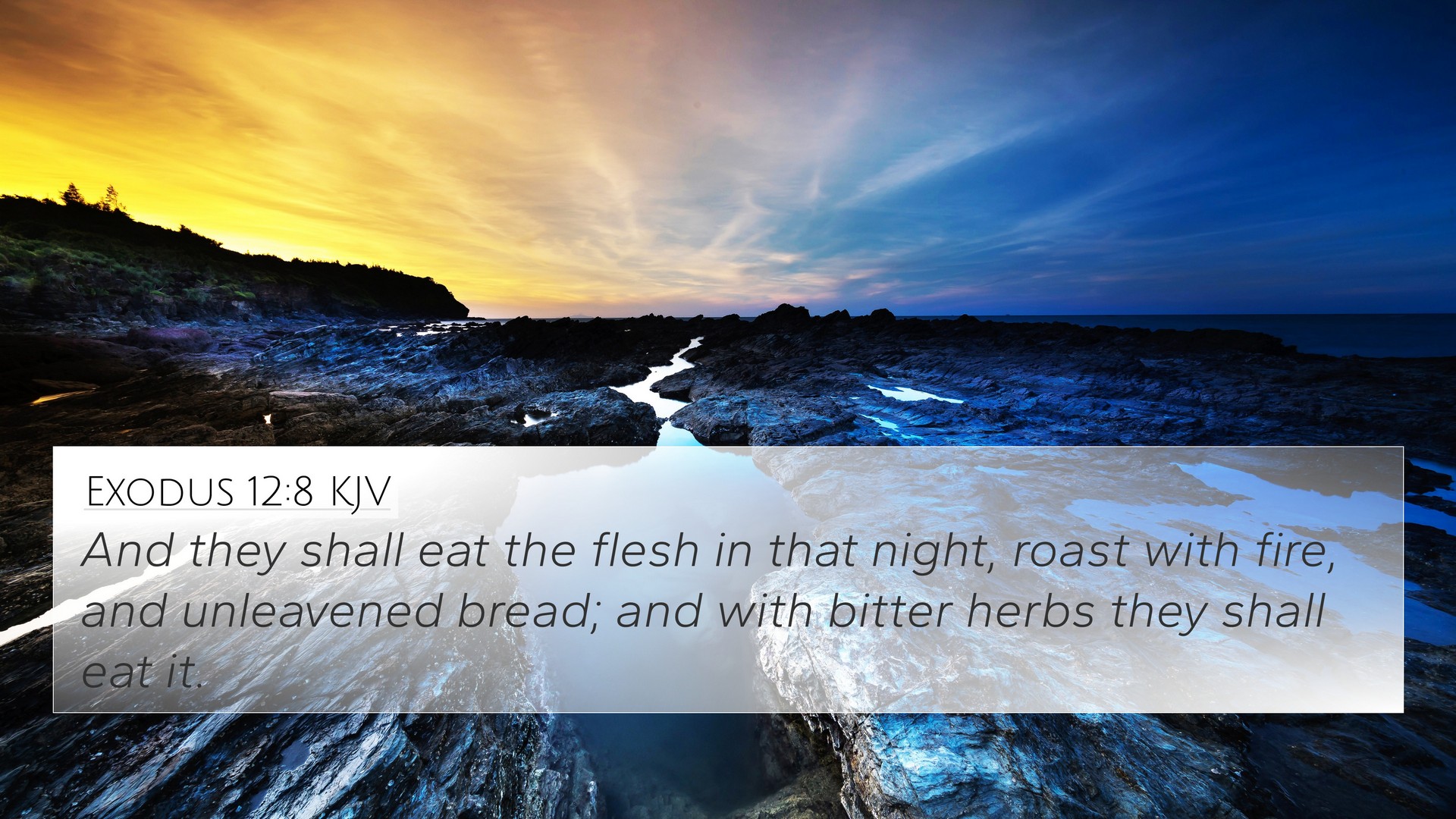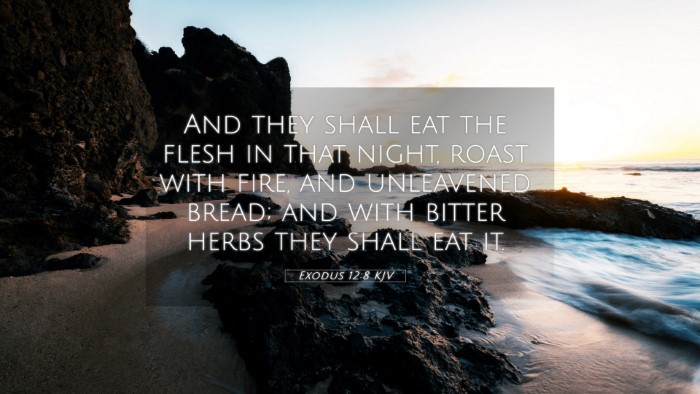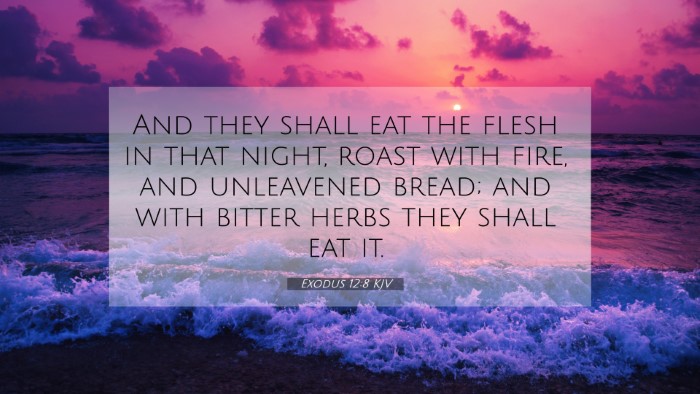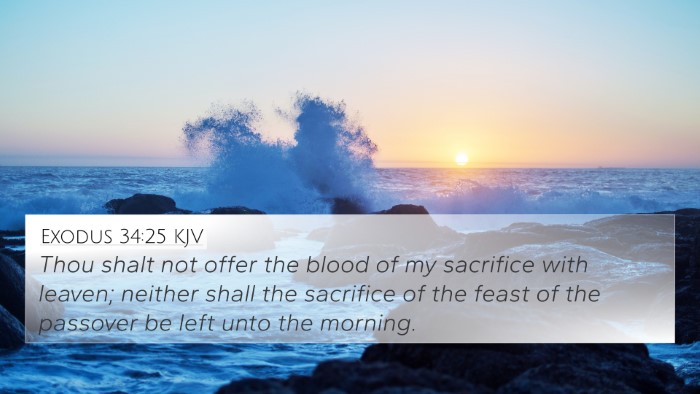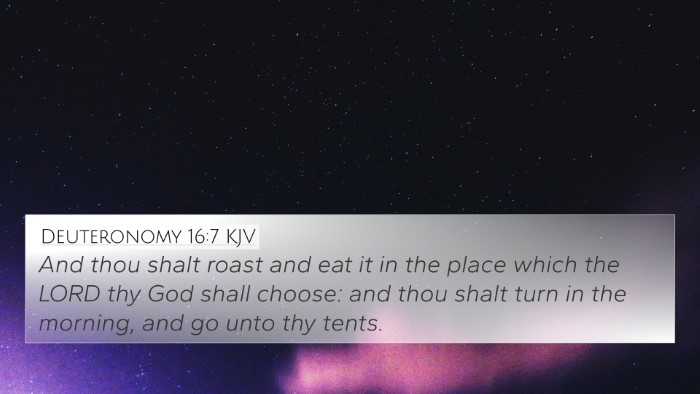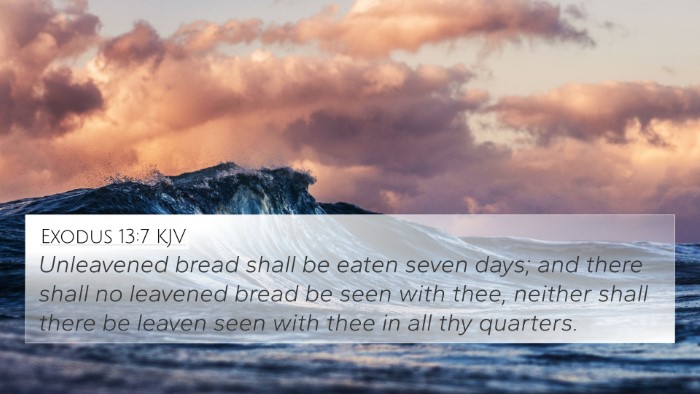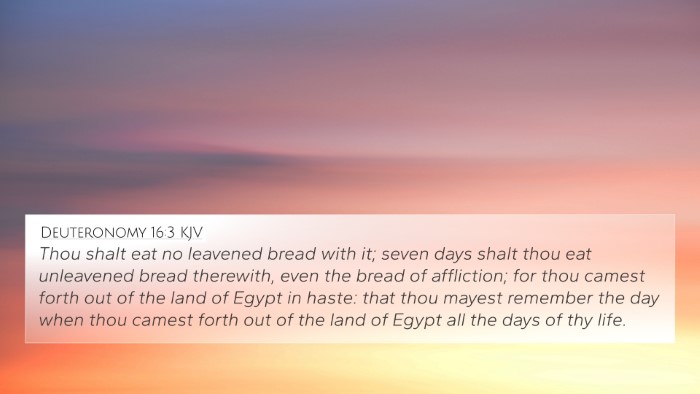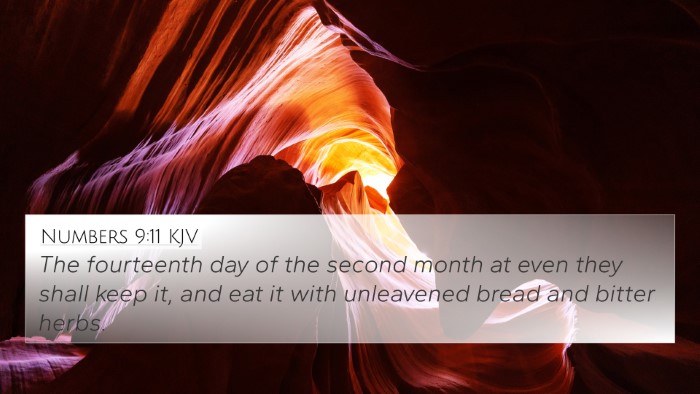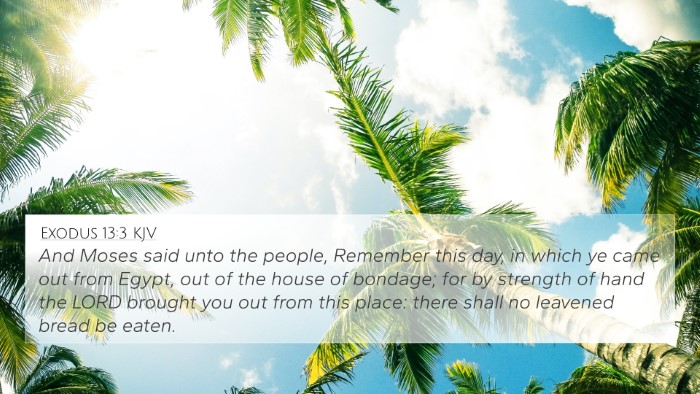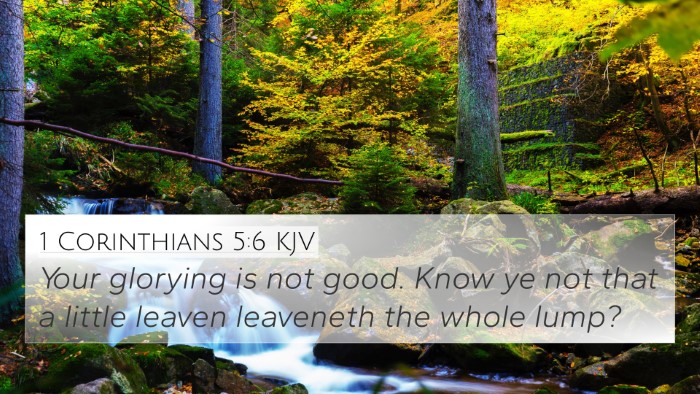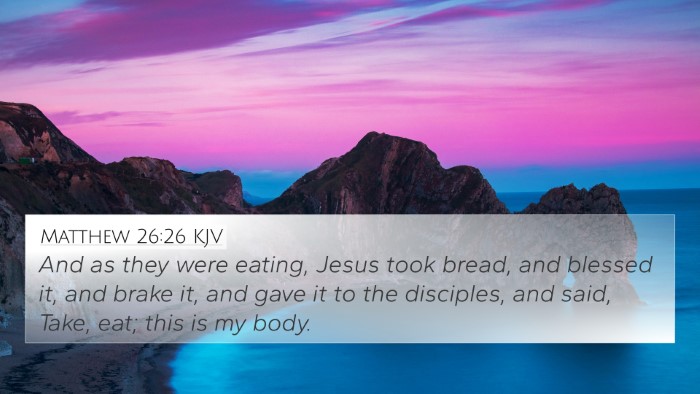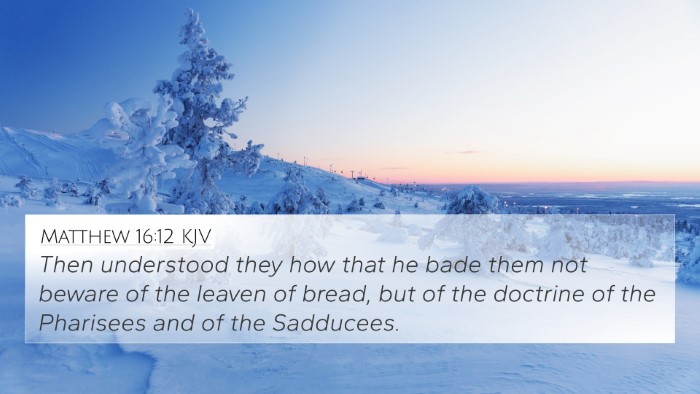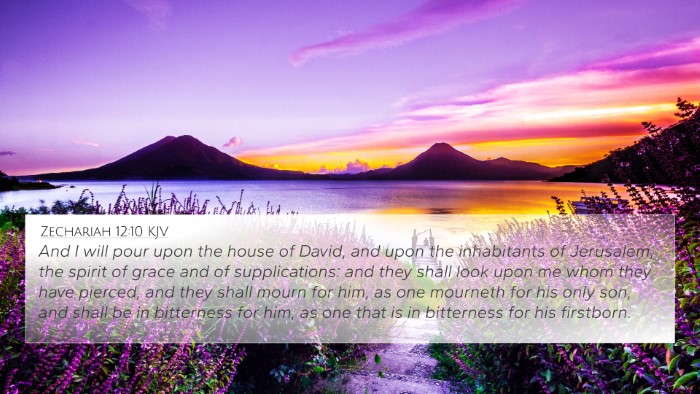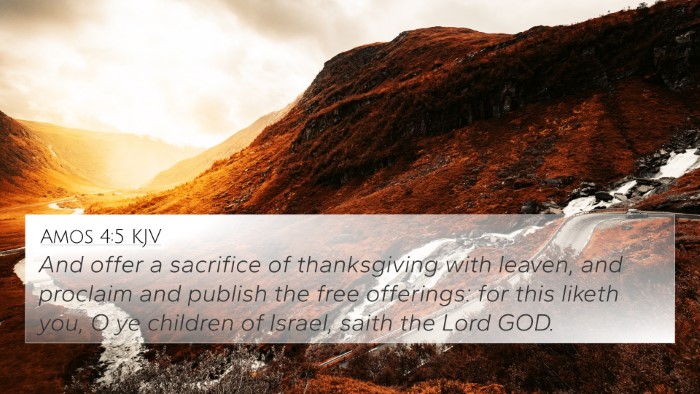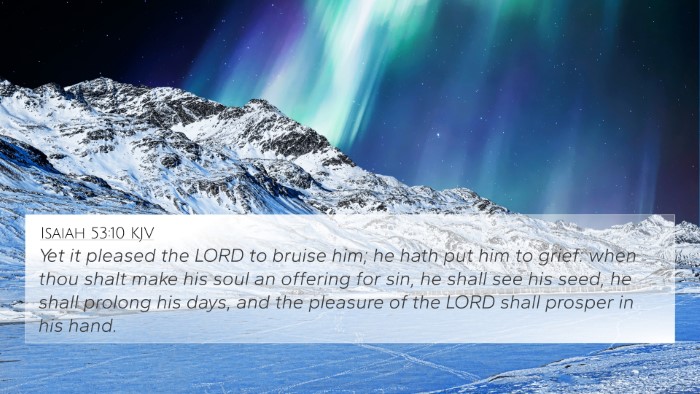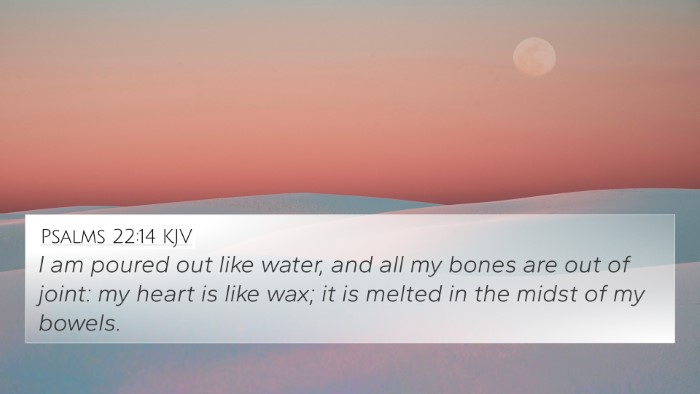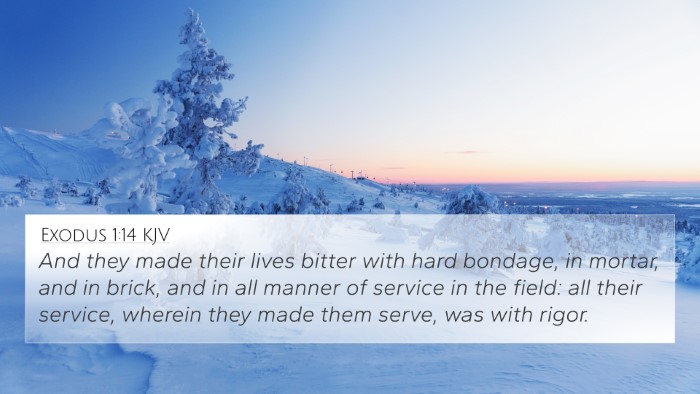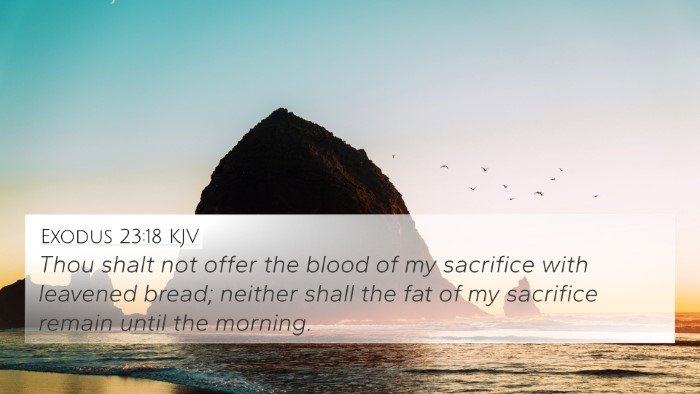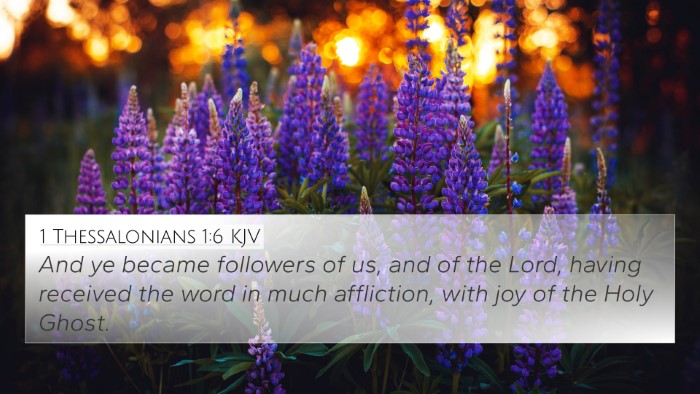Understanding Exodus 12:8
Exodus 12:8 states: “They shall eat the flesh that night, roasted on the fire; with unleavened bread and bitter herbs they shall eat it.” This verse is part of the instructions given to the Israelites regarding the Passover, a significant event marking their deliverance from Egyptian bondage.
Context and Significance
The context of this verse is pivotal for understanding its meaning. It occurs during the final plague in Egypt, where God commands the Israelites to prepare for their exodus. The elements specified in the verse—the roasted lamb, unleavened bread, and bitter herbs—are deeply symbolic.
- Roasted Flesh: Represents the sacrificial lamb, symbolizing salvation and protection through the blood of the lamb. This foreshadows the ultimate sacrifice of Christ.
- Unleavened Bread: Signifies purity and the haste of departure, as there was no time to allow bread to rise.
- Bitter Herbs: Symbolize the bitterness of slavery in Egypt, reminding the Israelites of their suffering.
Commentary Insights
Matthew Henry notes that the Passover meal was to be a time of anticipation and remembrance, establishing a covenant between God and His people. It served as a reminder of God’s deliverance and protection.
Albert Barnes emphasizes the need for the Israelites to follow God’s commands precisely, teaching obedience and faithfulness. The roasted lamb must be entirely consumed, ensuring that nothing of the sacrifice is wasted, which is a reflection of reverence for divine provision.
Adam Clarke indicates the communal aspect of the Passover, where families would gather to partake in the meal together, reinforcing community bonds and shared faith in God's promise of deliverance.
Cross-References
Exodus 12:8 connects with various other scriptures throughout the Bible, illustrating the thematic continuity of redemption and sacrifice.
- John 1:29: "Behold, the Lamb of God, who takes away the sin of the world!" - This verse connects the sacrificial lamb of Passover with Jesus as the ultimate sacrificial lamb.
- 1 Corinthians 5:7: "For Christ, our Passover lamb, has been sacrificed." - Indicates the fulfillment of the Passover in Christ's sacrifice.
- Hebrews 9:22: "Without the shedding of blood, there is no forgiveness." - This underscores the necessity of sacrifice for redemption, as seen in Exodus 12.
- Matthew 26:17-19: The Last Supper where Jesus celebrates Passover with His disciples emphasizes the continuity of this tradition and its fulfillment in Christ.
- Revelation 5:12: "Worthy is the Lamb who was slain..." - Connects the Old Testament practice to the worship of Jesus as the resurrected Lamb.
- Luke 22:7-8: Jesus instructs His disciples to prepare the Passover, reinforcing its significance in Christian tradition.
- Acts 12:4: This verse shows the observance of the Passover even in the early church, linking to the ongoing significance of these Jewish traditions.
Thematic Connections
Exodus 12:8 represents a significant point in Biblical history and theology, embodying themes of deliverance, obedience, and communal covenant. Understanding this relationship enhances one’s grasp of the narrative of salvation that runs throughout the Scriptures.
Bible Study Application
For those examining Bible verse cross-references, it is essential to consider how Exodus 12:8 fits into the broader themes of sacrifice and redemption. Utilizing a Bible cross-reference guide can aid in discovering these connections throughout both the Old and New Testaments.
Conclusion
In conclusion, Exodus 12:8 is not merely an ancient instruction but a rich source of theological reflection that invites individuals to explore the deep connections between biblical texts, particularly on the theme of redemption. By understanding how this verse relates to the overall narrative of the Bible, believers gain insight into the significance of their faith and practices.
